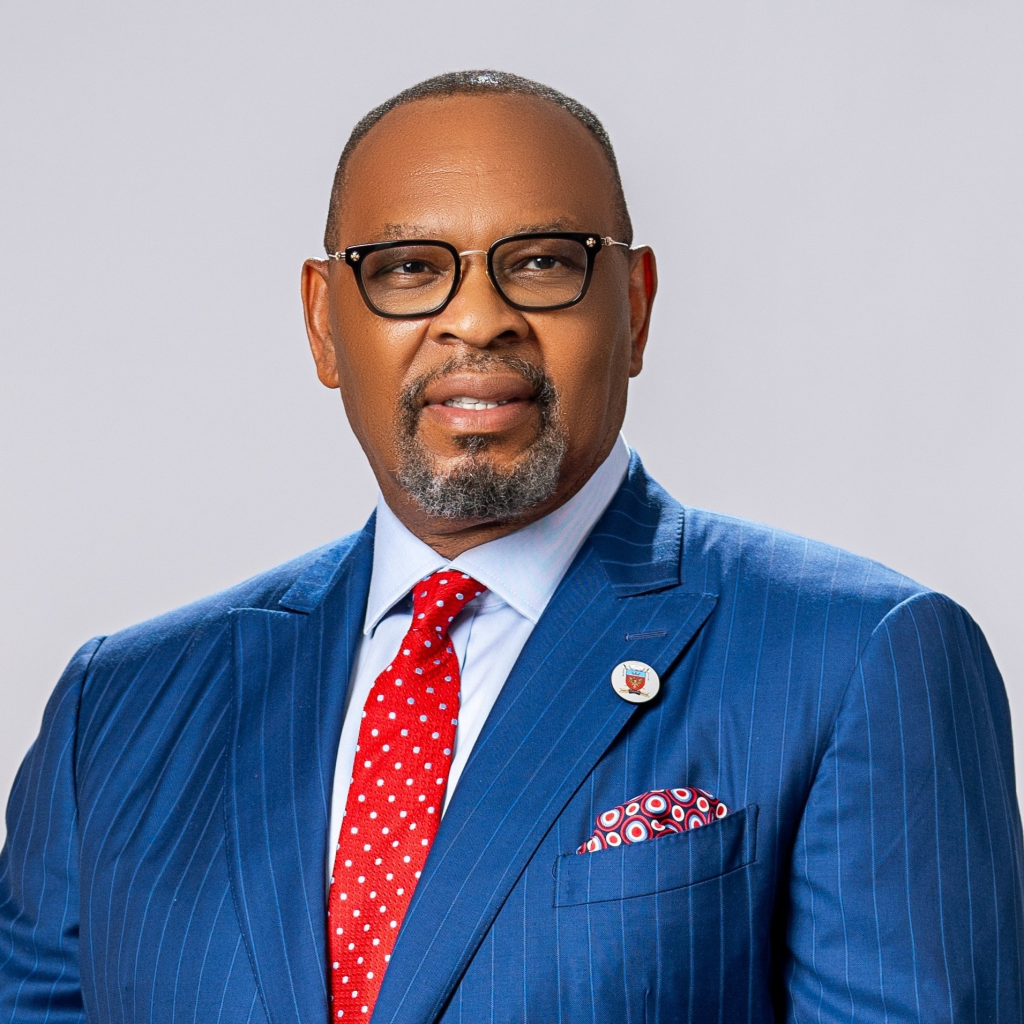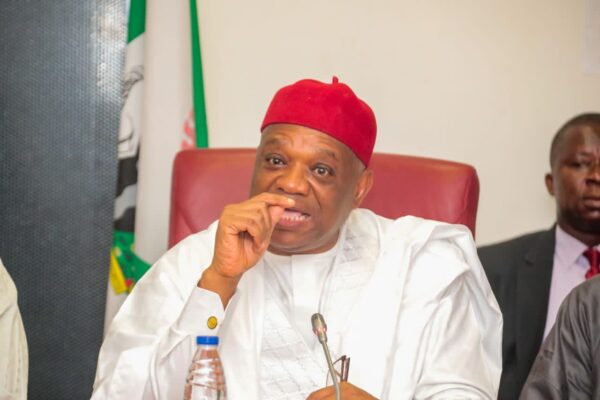
Trends and threads
By Oke Epia, E-mail: sostainability01@gmail.com | WhatsApp: +234 8034000706
Social value Vs CSR: Why companies should care
In today’s business world, especially across emerging markets like Nigeria, companies are increasingly expected to go beyond profit-making and contribute meaningfully to society. Understanding the distinction between Social Value and Corporate Social Responsibility (CSR) has become essential for building ethical, sustainable, and trusted businesses. As organizations in Nigeria and around the world deepen their engagement with communities, it’s important to understand how each approach can support both business success and social transformation.
What is social value?
Social value refers to the broader benefits a business creates for society through its operations. It goes beyond charity to focus on lasting, measurable outcomes that improve lives and strengthen communities. In Nigeria, where challenges such as unemployment, inequality, and environmental degradation persist, social value initiatives can drive systemic change. Examples include creating local jobs, investing in renewable energy, supporting education, or promoting healthcare access. When a company trains young graduates, empowers women entrepreneurs, or reduces its carbon footprint, it creates value that benefits both society and the economy. Social value is about embedding purpose into business models, ensuring growth aligns with the greater good.
What is CSR?
Corporate Social Responsibility (CSR) focuses on how companies act responsibly in their operations and interactions. It involves ethical conduct, community engagement, and responsible environmental practices. CSR is often associated with philanthropic projects such as donations, scholarships, or community outreach, which enhance a company’s public image and stakeholder trust. While social value is often built into the business strategy itself, CSR activities are usually periodic, like sponsoring a local event, supporting an orphanage, or funding educational programs. Social value involves employees, investors, local communities, and government agencies, emphasizing collaboration. CSR is often directed at specific groups, such as schools, hospitals, or local NGOs Both are essential, but social value tends to create deeper, long-term impact. Social value delivers sustained improvement in social and economic conditions. CSR builds goodwill and reputation but may not always create lasting systemic change. Ultimately, when social value and CSR are aligned, the result is far greater than the sum of their parts. Social value embeds purpose and sustainability into everyday operations, while CSR provides the outreach that meets urgent community needs. Together, they create a balanced model where businesses in Nigeria, and globally, can thrive responsibly, contribute to social progress, and build long-term stakeholder confidence.
Social value in practice
In Nigeria, companies such as MTN, Access Bank, and Dangote Group are showing how social value can be built into business strategy rather than treated as a separate initiative. MTN ICT and Business Skills Training (Youth Empowerment programs), for example, focus on equipping young Nigerians with digital skills that enhance employability and innovation. Similarly, Dangote Group incorporates community values into its industrial operations by supporting local farmers through its sugar and rice value chain projects, thereby enhancing food security and rural incomes. Access Bank has also incorporated environmental and social impact into its core sustainability agenda. Its Green Energy Finance projects, such as the Clean Energy Finance Scheme for sectors like healthcare and agriculture, and its Green Bonds, support renewable energy adoption by small businesses and households, reducing carbon emissions while driving inclusion. These initiatives demonstrate how embedding social impact into business operations leads to measurable results: creating jobs, supporting entrepreneurship, and fostering economic growth across Nigeria. Social value, in this sense, becomes not only about doing good but also about creating shared prosperity.
Why companies should care about both
Social value and CSR are not just moral obligations; they are competitive advantages. Nigerian businesses, like their global counterparts, operate in a world where sustainability influences consumer choice, investor confidence, and employee loyalty.Today’s consumers value authenticity and purpose. The global trend shows that consumers increasingly prefer brands that demonstrate care for people and the planet. Companies that embed social impact into their operations stand out, build trust, and earn customer loyalty. Across the global growing workforce, employees seek purpose-driven careers. Businesses that invest in community programs and uphold ethical practices attract motivated, skilled professionals who stay longer and perform better. Investors are shifting toward Environmental, Social, and Governance (ESG) principles. Nigerian firms that report measurable CSR and Social value outcomes are more likely to attract funding from local and global investors.
Washing and hushing
Fresh Nembe spill renews concerns over social license to operate

The ancient land of Nembe is yet again groaning. Scarred, scabbed, and scorned, the natives are bemoaning the blessings of crude oil. Leaks and spills from Oil Mining Lease (OML) 29 have been one too many, particularly over the last four to five years. What may be more recurring than these are perhaps a lack of proactive and weak responses from responsible parties – operators of the asset, regulators, and oversight bodies, including the national and state assemblies in Abuja and Yenagoa, respectively.
News reports indicate that an oil spill from an 8-inch crude delivery pipeline at OML 29 contaminated Nembe communities near the Santa Barbara River in Bayelsa State. The leak reportedly occurred in the Tora area of Nembe on October 1, the same day Nigeria celebrated its 65th independence anniversary. The communities are, as usual, counting the costs even as complaints of inadequate or shoddy responses resurface. The company and communities have reportedly disagreed over dates for a joint investigation visit (JIV) to the leak site. A news report said the latter wrote a letter through their counsel that it “requires and deserves decent notice to assemble a competent JIV team, some of whom usually come from Lagos, Port Harcourt and/or Yenagoa, in order to ensure due diligence and avoid or countervail the perennial practice of manipulating the JIV process and suppressing critical information.” The community demanded “a thorough and competent investigation of this spill, and adequate management (including swift post-spill assessment and remediation). Beyond this spill, for the record, we demand on behalf of our clients again for a top-level engagement (Company, Community Technical Team, and Regulators) for a lasting overall framework to put a stop to this unbearable and continual burden.”
OML 29 and the over 110 km, 600 Kbbl/d capacity Nembe Creek Truckline (NCTL) are operated by Aiteo Eastern Exploration and Production Company Limited, which has changed its name to Nembe Exploration and Production, Nembe E&P. Mr. Victor Okoronkwo, the Group Managing Director of the company, was reported to have said that the rebranding signals resilience and a renewed commitment to national growth. “Our host community, the heartland of our operations, is Nembe. So we thought it made sense, and the board approved that the company be renamed Nembe Exploration and Production,” Okoronkwo was quoted as saying. Aiteo not only changed its name but also scaled up its operations into a Floating Storage and Offloading (FSO) export terminal as part of “a renewed hope to make Nigeria great.” The leading local indigenous firm had acquired 45 percent of the stakes owned by Shell, Total, and Agip on the oil block and the trunkline. The deal, which arose from the divestment drive of the oil multinationals, is regarded as a local content success story in Nigeria’s oil and gas industry.
But the same cannot be said for the host communities, which have continued to suffer one spill after another from OML 29. There was a major spill in November 2021, which lasted for weeks and caused significant damage to the communities along the river- the environment was polluted, and livelihoods were adversely impacted. A leak in June 2024 led to the company shutting down the facility. These spills sparked controversies as the company and the communities often differed on the cause and extent of damage. While the former claimed sabotage of its facilities, the latter, backed by the Bayelsa State Government, pointed to equipment failure and poor maintenance. These claims and counter-claims have often weakened joint efforts to ascertain the circumstances behind the spills. While regulatory agencies have reportedly issued penalties, some stakeholders argue that those were mostly a slap on the wrist of the company. In all of these cases, the communities have been left with the short end of the stick, agitating for remediation, compensation, and comprehensive healthcare for those affected and exposed to the spill.
Given these circumstances, it is difficult to understand how Nembe E & P continues to have a social license to operate. It is not in its interest for a name change, which in this instance connotes a sense of community ownership, to be perceived as a smokescreen. A genuine and demonstrated commitment to sustainability is what is needed. Not just for this particular company but for all firms – local and foreign – extracting petroleum resources in Nigeria.
Spotlight
Shipping taxes: As Trump bares fangs on climate governance

America has yet again thrown fresh cogs into the wheel of global climate governance. The world’s biggest superpower is not just following up on its withdrawal from the Paris Agreement but also attempting to effectively dismantle foundations that took years to build. The onslaught, this time, is against moves to reduce carbon dioxide emissions in shipping.
In a joint statement released last week and signed by the US Secretary of State, Marco Rubio, Commerce Secretary Howard Lutnick, Energy Secretary Chris Wright, and Transportation Secretary Sean Duffy, the US expressed staunch opposition to the introduction of a carbon tax for global shipping. The government not only opposed the plan but also threatened to impose sanctions on countries that promote it, saying the carbon tax would lead to a rise in the cost of goods for US citizens and business costs for companies.
The impending tax is part of a net zero framework promoted by the International Maritime Organisation (IMO). Sums, ranging from $100 to $380, will be imposed on vessels emitting greenhouse gases (GHG) above a defined threshold. The plan, to be implemented from 2028, includes a carbon market mechanism, and the revenues raised from the scheme will be invested in decarbonisation efforts in the global maritime sector. According to the IMO, international shipping contributes around 2.8 percent to global emissions. Thus, the target is to reduce this figure as part of a 2050 net zero pathway. But with the US threatening to torpedo this objective, the world would have to find ways around it.
When United States President Donald Trump doubled down heavily on climate denial at the just concluded 80th United Nations General Assembly (UNGA), he was unchallenged. Having ruptured global trade diplomacy with heavy-handed unilateral tariffs, Trump is now moving to match words with action to upend certain aspects of climate governance.
Meanwhile, how is Nigeria, particularly the Ministry of Blue Economy, preparing for this significant carbon tax on shipping?


